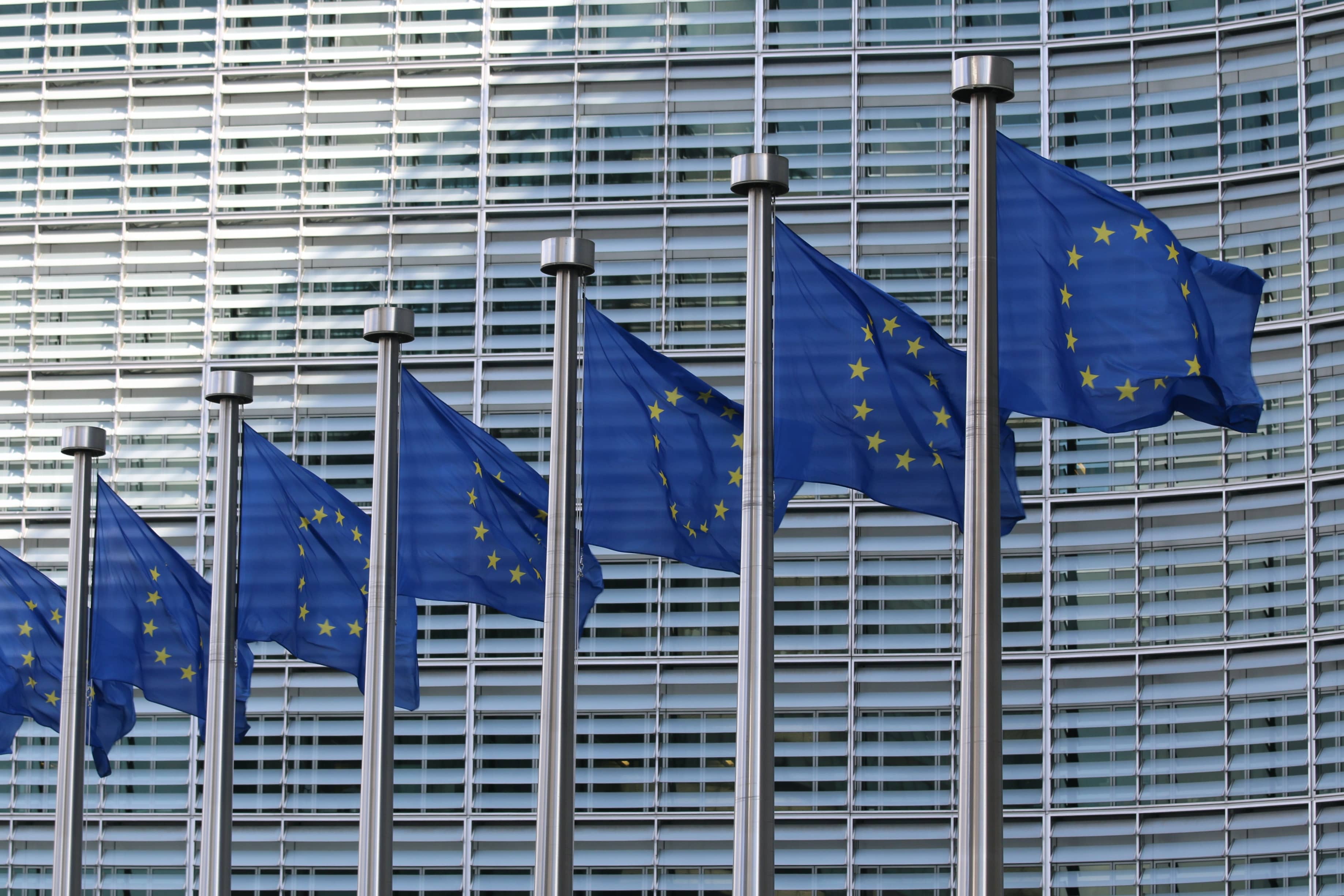Vendor due diligence plays a critical role in building solid partnerships, reducing risks, and ensuring compliance. Whether you’re vetting a potential supplier or conducting an annual review, following a robust due diligence checklist can safeguard your business. Let’s break down vendor due diligence essentials with a touch of wit to keep it engaging.
What is Vendor Due Diligence?
Vendor due diligence is the investigative process undertaken to evaluate the risks, compliance, and credibility of a potential or existing supplier. It’s a way to dig deeper into a supplier’s operations, reputation, and compliance record to ensure they align with your business values and standards.
Why is Vendor Due Diligence Important?
Vendor due diligence is the foundation of a well-managed supply chain and a strategic defense against potential risks. Conducting thorough due diligence on your vendors isn't just a box-ticking exercise—it’s an essential business practice that brings several key benefits. Here’s why vendor due diligence should be a top priority for your procurement and supply chain team:
Risk Mitigation
Every vendor relationship carries an inherent level of risk, from financial instability to operational disruptions. Vendor due diligence helps identify these risks early, enabling your team to assess whether a supplier is equipped to meet contractual and quality obligations. By understanding a supplier’s financial health, operational capacities, and compliance status, you can reduce exposure to disruptions, protect your business from potential liabilities, and prevent supply chain surprises. Learn more on how to enhance your Supplier Risk Mitigation here.
Regulatory Compliance
If you operate in the EU, you may have heard of CSDDD? Its regulatory requirements already apply thousands of companies and came into action in July, 2024. When in full force, over 50 000 companies will be having to meet its requirements. Read more on how to manage the requirements of CSDDD & CSRD.
Besides that, businesses in regulated industries—such as finance, pharmaceuticals, and food—compliance is non-negotiable. Due diligence ensures suppliers meet all necessary legal and regulatory requirements, protecting your business from hefty fines or legal complications. This is especially crucial in industries with strict environmental or labor regulations, where compliance issues can lead to reputational damage. By conducting due diligence, your business can avoid penalties and ensure that every partner upholds the standards required by local and international laws.
Enhanced Supply Chain Resilience
A single supplier’s failure to deliver can have a ripple effect across the entire supply chain. Vendor due diligence helps build a resilient supply chain by identifying reliable partners with a proven track record. With resilient suppliers, your business is better prepared to adapt to unexpected changes, whether they’re caused by market fluctuations, natural disasters, or political unrest. This resilience is especially valuable in global markets, where risks are more diverse and can change rapidly. Read more on how you can enhance Supply Chain Resilience here.
Protection of Brand Reputation
Your suppliers are an extension of your brand. If a supplier is found to be involved in unethical practices—such as labor exploitation or environmental harm—your company could suffer reputational damage by association. Due diligence protects your brand’s reputation by ensuring your suppliers meet ethical standards, align with your company’s values, and avoid actions that could reflect poorly on your business. By taking proactive steps to vet suppliers, you demonstrate a commitment to responsible sourcing, which can build trust with customers and stakeholders.
Cost Savings & Efficiency
While due diligence requires an upfront investment of time and resources, it can result in significant long-term cost savings. By identifying potential red flags early, you avoid the financial fallout of a failed supplier relationship, production delays, or quality issues. Additionally, due diligence helps identify suppliers with efficient processes and strong operational standards, which can lead to better quality products, fewer disputes, and more favorable contract terms.
Strengthening Supplier Relationships
Due diligence isn't just about screening out risky vendors—it’s also a pathway to building stronger, mutually beneficial relationships with reliable suppliers. By understanding a supplier’s capabilities, needs, and business practices, you can create more strategic partnerships that foster collaboration, innovation, and shared goals. Well-informed partnerships often lead to better terms, more effective communication, and increased flexibility, allowing you to work closely with suppliers who are as invested in your success as you are in theirs. Read more about Supplier Relationship Management here.
The Vendor Due Diligence Checklist
Conducting a thorough vendor due diligence process involves checking multiple aspects of a supplier’s financial, operational, legal, and ethical standards. Each step helps ensure you partner with vendors who not only meet your standards but also support your organization’s long-term goals. Here’s what each component entails:
.png?width=1917&height=1085&name=Blog%20Images%20etc%20(12).png)
Financial Health Analysis
Understanding a supplier’s financial stability is essential for risk management. A financially unstable supplier may struggle to fulfill long-term contracts, leading to supply chain disruptions and potential losses.
Review Audited Financial Statements
Audited financial statements provide a comprehensive view of a supplier’s revenue, expenses, and overall financial health. Examining these statements allows you to assess the supplier’s profitability, cash flow, and debt obligations, providing a clearer picture of their long-term viability.
Assess The Supplier’s Creditworthiness
A supplier’s credit score and payment history with other clients can indicate their ability to meet financial commitments. A low credit score or history of payment delays might suggest liquidity issues, which could hinder their capacity to maintain consistent delivery.
Compliance Checks
Ensuring compliance and adherence to industry-specific standards is crucial for maintaining a trustworthy supply chain. This step helps you avoid regulatory risks that could impact your business.
Confirm Compliance With Local & International Laws
Verifying that the supplier complies with relevant laws—whether local labor laws or international trade regulations—protects your business from potential legal repercussions. It’s especially crucial when sourcing internationally, where regulations vary significantly.
Ensure They Meet Industry-Specific Certifications
Certain industries have mandatory certifications that indicate a supplier’s compliance with industry standards. For example, the pharmaceutical industry may require Good Manufacturing Practices (GMP), while food suppliers may need Hazard Analysis and Critical Control Points (HACCP) certification. Checking for these certifications assures that the supplier meets the necessary regulatory standards.
Quality and Operational Standards
Consistent quality and reliable operations are foundational for dependable supplier relationships. Evaluating a supplier’s quality control processes helps prevent potential issues before they affect your products.
Supplier Audits - Inspect Production Facilities On-Site
A physical audit allows you to evaluate the supplier’s production processes, equipment quality, and work environment. A well-maintained facility with advanced equipment is more likely to produce high-quality goods than one with outdated or poorly maintained machinery. Learn more about how supplier audit software can help your business.
Check For Quality Management Systems Like ISO Certifications
Certifications like ISO 9001 signal a supplier’s commitment to quality management. These standards show that the supplier has established processes to maintain and improve product quality, which can help prevent defects, ensure consistency, and enhance customer satisfaction.
Ethical & Environmental Responsibility
Consumers and businesses alike increasingly prioritize ethical and sustainable sourcing. Ensuring that your suppliers meet these criteria protects your brand’s reputation and aligns with corporate social responsibility goals.
Verify Sustainable Practices
Assessing a supplier’s environmental practices—such as energy usage, waste management, and carbon footprint—helps ensure that they are environmentally responsible. Choosing suppliers with eco-friendly practices not only supports sustainability but also appeals to environmentally-conscious consumers.
Ensure No Violations of Human Rights or Labor Laws
Ethical due diligence involves confirming that suppliers uphold fair labor practices and adhere to international human rights standards. This check can involve reviewing the supplier’s policies on labor rights, conducting audits, and ensuring they don’t engage in unethical practices like child labor or forced labor.
Sanctions & PEP
Verify that the supplier and its key personnel are not on any sanctions lists, blacklists or identified as Politically Exposed Persons (PEP), as these associations could pose legal and reputational risks. Regularly checking these lists helps ensure compliance with international regulations and reduces exposure to potential financial penalties.
Identify Sanctions List Status
Sanctions lists, maintained by governments and international organizations (like the United Nations or the U.S. Office of Foreign Assets Control), identify individuals, companies, and countries subject to trade restrictions or economic sanctions. Partnering with a sanctioned entity could expose your company to financial penalties, legal actions, and significant reputational damage. Screening against these lists as part of due diligence helps ensure compliance with international trade laws.
Understand The Risks of Politically Exposed Persons (PEPs)
PEPs are individuals who hold or have held prominent public positions, such as government officials, military leaders, or judges, and are therefore at a higher risk of being involved in corruption or bribery. Suppliers with PEPs as board members, major shareholders, or executives may increase the risk of compliance breaches and reputational harm for your business. Identifying PEPs as part of the due diligence process enables you to assess potential risks associated with politically influenced decision-making.
Monitor Sanctions & PEP Status Regularly
A one-time sanctions and PEP screening may not be enough, as the status of individuals and entities can change. Regular monitoring is advised, especially for key suppliers, to ensure they remain compliant over time. Continuous screening can be automated through due diligence software, which provides alerts if any supplier’s status changes, allowing you to take timely action.
Media Monitoring
A supplier’s reputation is often a reliable indicator of their reliability, product quality, and customer service. Gathering insights from media screening and public records can reveal potential issues you may not find in financial or operational checks.
Look For Any Red Flags in Media & Public Records
Screening media or searching public records for legal disputes, bankruptcies, or negative press can reveal any past issues with the supplier. If they’ve had recurring legal or financial troubles, it’s worth investigating further to determine if these could impact your relationship with them.
Best Practices For Supplier Due Diligence
Implementing a systematic approach to supplier due diligence helps procurement teams reduce risks, ensure compliance, and build strong, resilient supplier relationships. Here are some best practices to guide your due diligence efforts and ensure that every supplier aligns with your company's values and objectives:
.png?width=1917&height=1085&name=Blog%20Images%20etc%20(13).png)
Develop a Clear Due Diligence Policy
Start by creating a standardized due diligence policy that outlines the steps and criteria for evaluating suppliers. This policy should define the scope of due diligence (financial, operational, legal, ethical, etc.), specify criteria for different types of suppliers, and provide guidelines for documenting findings. A clear policy ensures that all stakeholders understand what’s required, promotes consistency, and helps new team members onboard quickly.
Segment Suppliers By Risk Level
Not all suppliers carry the same level of risk, so due diligence efforts should be proportional to the supplier’s impact on your business. High-risk suppliers—such as those in critical supply chain roles, located in high-risk regions, or involved in regulated industries—should undergo more rigorous screening. Segmenting suppliers based on risk level allows for a more efficient allocation of resources, ensuring that high-risk suppliers receive the attention they require.
Use a Risk-Based Approach To Due Diligence
A risk-based approach tailors the depth and frequency of due diligence activities to the specific risks posed by each supplier. For example, suppliers in sectors prone to corruption may require regular compliance audits, while those in stable, low-risk markets might only need annual reviews. By focusing on suppliers that present the highest risk, you can better allocate resources and maintain a balanced approach that covers critical areas without overwhelming your team.
Conduct Ongoing Monitoring & Periodic Reviews
Supplier due diligence isn’t a one-time event; it requires ongoing monitoring to account for changes in the supplier’s status or market environment. Periodic reviews help detect any shifts in financial stability, operational capabilities, or legal compliance. Using automated tools to continuously monitor suppliers for red flags—like changes in credit score, legal disputes, or involvement in controversies—helps you stay informed and act swiftly if needed.
Leverage Technology & Automation
Due diligence software and Supplier Relationship Management (SRM) tools streamline the due diligence process by automating tasks like data collection, risk assessments, and compliance checks. These platforms often provide real-time updates, generate alerts for potential issues, and simplify documentation. Automating these elements can save time, reduce human error, and enhance your team’s ability to manage due diligence for a large supplier base.
Verify Data Through Independent Sources
Relying solely on information provided by the supplier can be risky, as it may not always present a full or unbiased view. Use independent sources, such as third-party audit reports, credit bureaus, and industry databases, to verify the accuracy of the data provided. This practice ensures that your due diligence is based on reliable, objective information and reduces the chance of overlooking critical details.
Ensure Cross-Departmental Collaboration
Supplier due diligence involves more than just the procurement team; it requires input from legal, compliance, finance, and quality control departments. Encourage collaboration among these teams to get a comprehensive view of each supplier’s performance and risk profile. Legal teams can handle regulatory compliance checks, finance can assess financial stability, and quality control can ensure adherence to production standards. By leveraging expertise across departments, you create a robust due diligence framework that covers all relevant areas.
Document & Store Due Diligence Findings
Proper documentation of due diligence findings is crucial for compliance, future reference, and audit trails. Clearly record each step of the due diligence process, including initial assessments, results of ongoing monitoring, and actions taken in response to identified risks. Storing these records in a centralized digital system makes it easier to retrieve them for internal reviews or regulatory audits, helping to maintain accountability and transparency. Learn more on how you can improve your supplier document management.
Include Ethical & Sustainability Standards
More companies are incorporating ethical and sustainability criteria into their due diligence processes to align with corporate social responsibility (CSR) goals. This includes assessing suppliers’ environmental practices, labor conditions, and adherence to ethical business standards. A focus on sustainability and ethics not only safeguards your brand reputation but also appeals to stakeholders who value responsible sourcing.
Establish Corrective Action Plans For Non-Compliance
Occasionally, a supplier may fail to meet certain standards or requirements. Rather than severing the relationship immediately, establish a remediation plan to allow the supplier to address and correct the issues. Monitor progress and provide guidance to help them align with your standards. Continuous improvement strategies, such as regular performance reviews and constructive feedback, can help suppliers enhance their practices, strengthening the overall quality of your supply chain. Learn more on how Kodiak Hub helps companies automate Corrective Action Plans.
How SRM Software Helps With Supplier Due Diligence
Managing due diligence on suppliers can be a complex, time-consuming task, especially when dealing with large numbers of vendors or high-risk suppliers. Advanced software solutions streamline this process, making it easier for procurement teams to stay on top of compliance, performance, and risk factors with minimal manual intervention. Supplier relationship management (SRM) platforms , like Kodiak Hub’s, offer tools and features designed to automate and enhance each step of due diligence, helping procurement professionals make informed decisions and maintain a resilient, compliant supply chain. Here’s how software can support and optimize due diligence on suppliers:
.png?width=1917&height=1085&name=Blog%20Images%20etc%20(11).png)
Automated Data Collection & Verification
One of the biggest challenges in supplier due diligence is gathering and verifying information from multiple sources. SRM platforms automate data collection by integrating with third-party data providers and government databases, pulling in real-time financial, legal, and compliance information. This reduces manual data entry, minimizes errors, and ensures that teams have access to accurate, up-to-date data. With real-time verification, software can immediately flag discrepancies or red flags, allowing teams to take action faster.
Compliance Monitoring & Alerts
Due diligence software continuously monitors suppliers for changes in compliance status. This is particularly valuable for tracking sanctions lists, regulatory updates, and adherence to industry-specific certifications. Many platforms offer automated alerts that notify teams if a supplier’s compliance status changes or if new risks are identified. These proactive alerts enable teams to respond quickly to potential issues, ensuring that they are always aware of compliance risks and can take preventive actions to avoid penalties.
Risk Assessment & Scoring
Advanced SRM platforms come with built-in risk assessment tools that analyze a supplier’s financial health, legal history, operational reliability, and ethical standards. By assigning risk scores based on these factors, software provides an at-a-glance overview of each supplier’s risk profile. This scoring system allows procurement teams to prioritize high-risk suppliers for more in-depth reviews, while streamlining the approval process for low-risk suppliers, making the due diligence process more efficient and focused.
Streamlined Supplier Onboarding
Onboarding new suppliers is a complex process that requires thorough verification and documentation. Due diligence software simplifies onboarding by digitizing and centralizing all necessary documentation and approvals. It automates workflows for information collection, compliance checks, and approval steps, ensuring that new suppliers are thoroughly vetted before entering the supply chain. This not only accelerates the onboarding process but also creates a consistent, auditable process that meets regulatory requirements. Learn more about supplier onboarding here.
Performance Tracking & Continuous Monitoring
Due diligence doesn’t end with the initial screening. Effective SRM platforms support continuous performance monitoring, tracking metrics such as quality, delivery timelines, and compliance adherence over time. By aggregating performance data, the software provides insights into trends, highlights areas for improvement, and flags suppliers whose performance is declining. Continuous monitoring ensures that due diligence is an ongoing process, helping procurement teams make adjustments or intervene when necessary. Learn more about supplier performance management here.
Audit Trails & Documentation Management
Due diligence often requires documentation to prove compliance and support audits. SRM software organizes and stores all relevant documents, from certificates and contracts to audit reports and performance records, in a centralized, easily accessible repository. This makes it simple to retrieve information for internal reviews, regulatory audits, or supplier performance evaluations. Having a clear audit trail also enhances accountability and transparency in the due diligence process. Check out Kodiak Hub's tools for Supplier Audit Management.
Integration With ESG & Ethical Standards
Modern SRM platforms increasingly support Environmental, Social, and Governance (ESG) criteria, helping companies track sustainability and ethical practices within their supply chains. With built-in ESG monitoring, software can assess a supplier’s environmental impact, ethical practices, and adherence to corporate social responsibility (CSR) standards. Procurement teams can track these metrics over time, allowing them to work only with suppliers who align with the company’s values and long-term sustainability goals. Read more on how you can enhance your ESG reporting here.
Enhanced Collaboration & Communication
Managing supplier relationships requires clear communication and collaboration between internal teams and suppliers. SRM platforms offer communication tools and portals that facilitate information sharing, performance feedback, and issue resolution in real-time. This enhanced collaboration not only strengthens supplier relationships but also ensures that both parties remain aligned on compliance and quality standards, fostering a proactive approach to maintaining supplier performance. Read more on how you can improve your supplier collaboration here.
Predictive Analytics For Risk Mitigation
Some advanced SRM platforms incorporate predictive analytics, using historical data and machine learning to forecast potential risks or supply chain disruptions. Predictive analytics can provide early warnings of financial instability, geopolitical risks, or quality concerns with a supplier, allowing procurement teams to take proactive measures to mitigate these risks. This capability enhances the due diligence process by adding a layer of foresight, helping teams stay one step ahead in risk management.
Simplifying Multi-Tier Due Diligence
For companies working with complex supply chains that involve multiple tiers of suppliers, due diligence software simplifies multi-tier risk assessment. By tracking suppliers beyond the first tier, SRM platforms provide visibility into the broader supply network, ensuring that all participants meet due diligence requirements. This is particularly important for companies with global supply chains, where risks can extend deep into the supply network.

Learn More About Kodiak Hub’s SRM Software For Vendor Due Diligence
Kodiak Hub’s Supplier Relationship Management (SRM) platform is designed to revolutionize the way procurement and supply chain professionals manage vendor due diligence. By combining cutting-edge technology with an intuitive interface, Kodiak Hub streamlines every aspect of the due diligence process—from initial supplier screening to ongoing performance monitoring—saving you time and reducing risk.
Remember that vendor due diligence checklist we wrote further up? Sounded pretty time-consuming right? Well, with Kodiak Hub, you can automate many of these tasks like Compliance checks, Financial health checks, PEP & Sanctions, Risk scoring, Media monitoring, and Documentation Management. All at your fingertips within seconds.
Real-time alerts keep you informed about changes in supplier compliance or risk status, while centralized dashboards offer deep insights into supplier performance and sustainability metrics. Our platform also integrates seamlessly with third-party data providers, ensuring you have access to the most accurate and up-to-date information for making informed decisions.
What sets Kodiak Hub apart is its focus on collaboration and continuous improvement. The platform fosters stronger supplier relationships through shared insights, transparent communication, and actionable feedback loops. Whether you’re conducting a multi-tier risk assessment or tracking ESG criteria, Kodiak Hub gives you the tools to stay ahead of evolving industry standards while meeting your organization’s strategic goals.
Ready to simplify and elevate your vendor due diligence process? Learn more about how Kodiak Hub can help your organization stay compliant, resilient, and proactive by reaching out to us!












